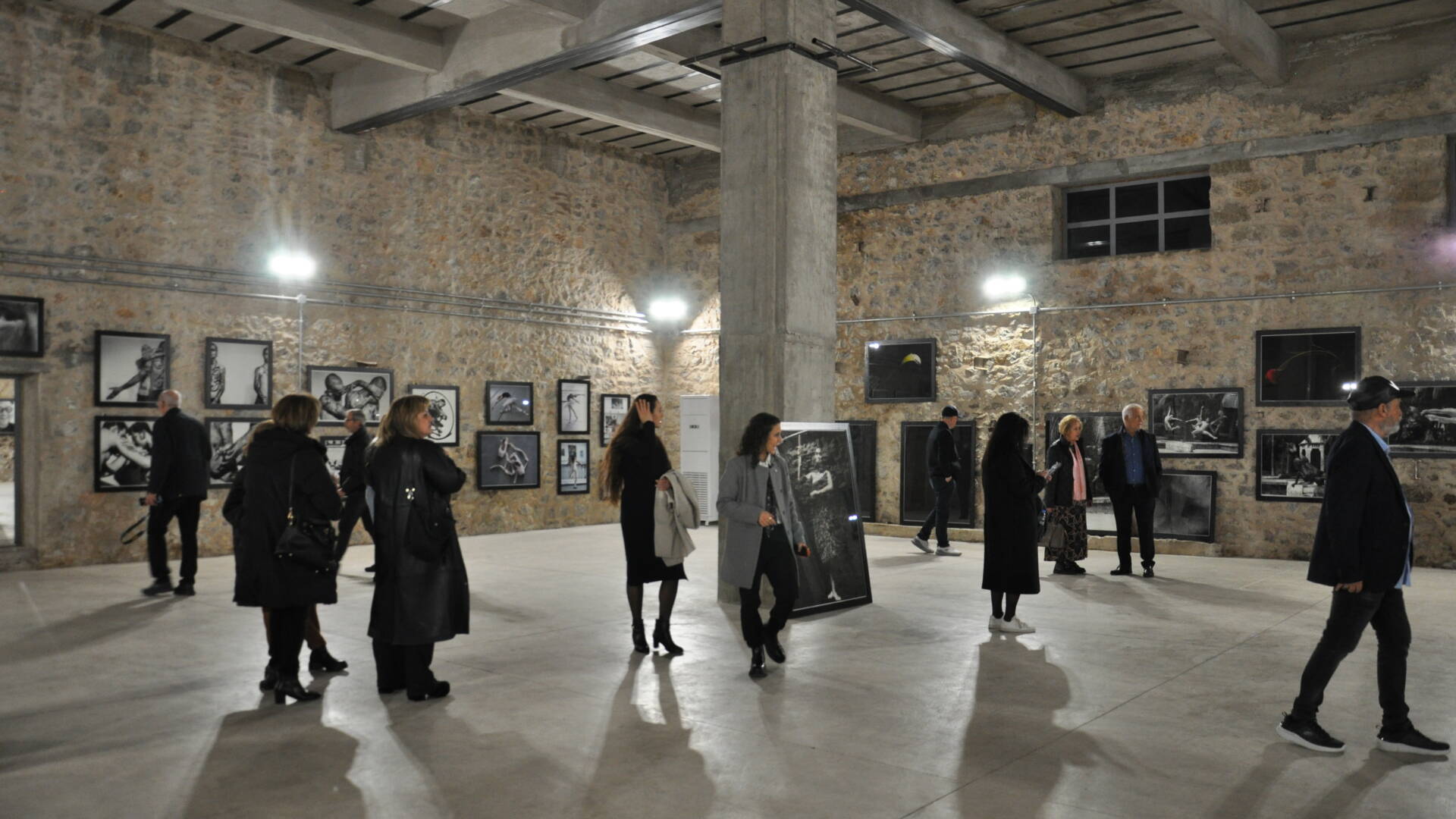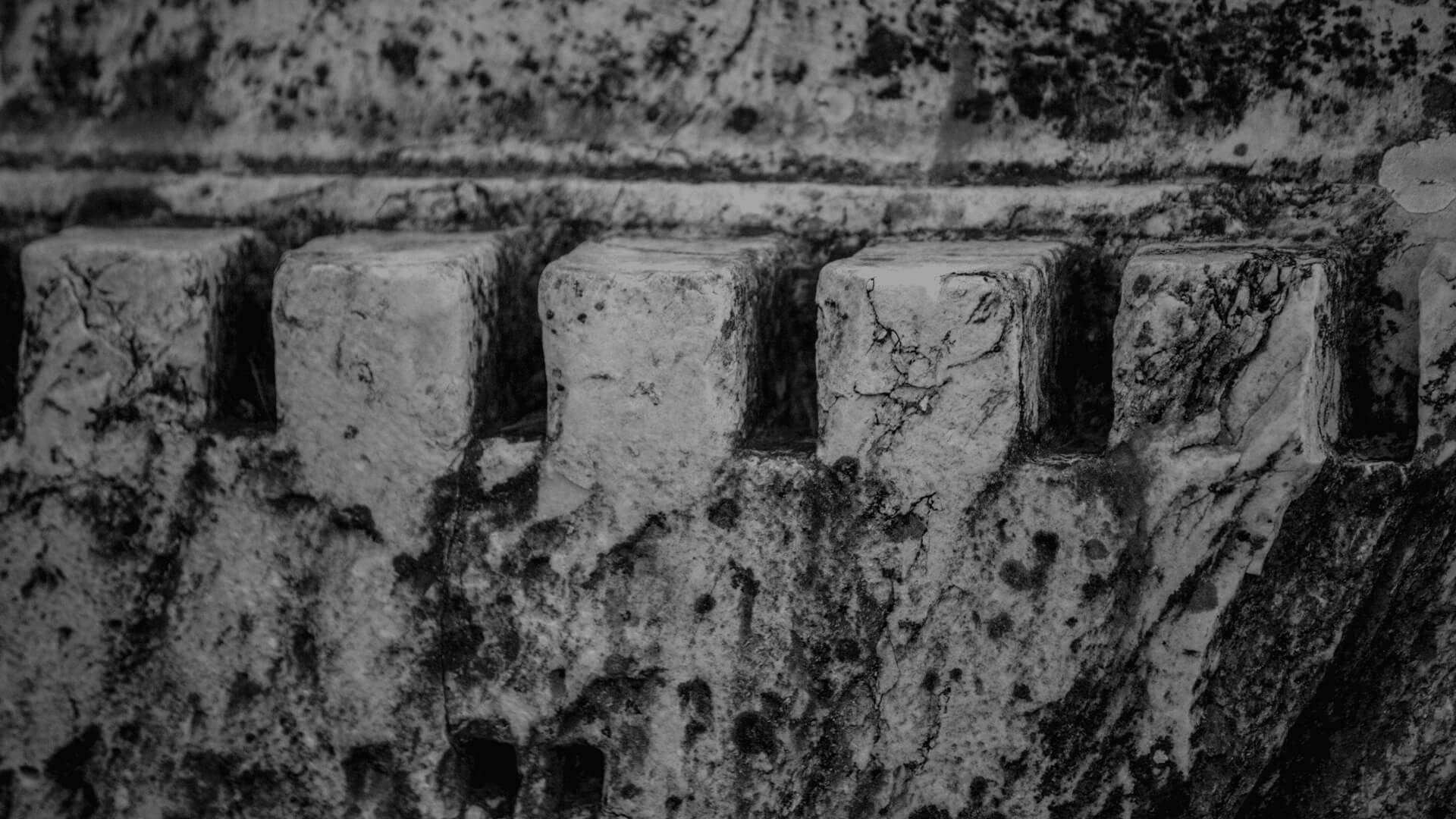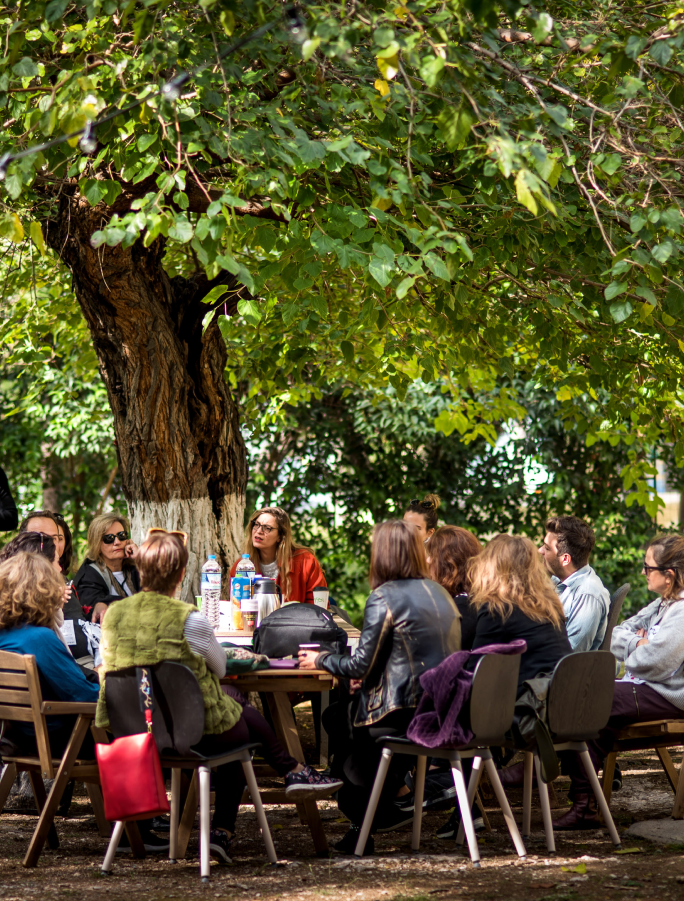Pre-sale has started for the revolutionary performance “ΟΜΜΑ,” by renowned choreographer Josef Nadj, a co-production of Eleusis 2023 European Capital of Culture and Aeschylia Festival 2021. A magical journey of eight dancers to the ancient roots of Dance and to our deepest selves, presented for the first time ever in Greece on September 15 & 16, at the Old Olive Mill Open Theater, in Elefsina.
Breathing, voices, silence and intoxicating jazz rhythms compose the eerie atmosphere of “OMMA,” guiding the audience through a journey of self-knowledge, as primal as the very nature of dance itself. In OMMA, Nadj brings together a group of dancers from Mali, Senegal, Côte d’Ivoire, Burkina Faso, Congo-Brazzaville and the Democratic Republic of the Congo, creating a project with influences from various artistic movements, cultures and human stories.
In “OMMA,” Nadj returns to the roots of dance, where the balance of the universe is revealed. With movement as the essence and the universe as the horizon, he seeks to prove his hypothesis that dance was born along with humanity. If this is so, then returning to the source of dance and movement equate to returning to the origin of the universe.
The title of the performance comes from the ancient Greek word “omma” (ὄμμα) and explores something very essential: the ability to watch, through the sense of sight, and everything that happens during the deeper introspection of the self. The ancient Greek meaning of the word OMMA acquires a new meaning: “eye” but also “that which sees or looks.” Therein lies an invitation: if the senses are alert, then the audience will be able to better understand this dance, dedicated to the genesis of humanity; to see in depth what lies within, a common destiny.

For Josef Nadj, “ΟΜΜΑ” it is essential that the performance is about bodies and movement; on the bare stage, the dancers’ bodies, the sound and the lighting are enough. In an empty space that is both infinite and finite, eight dancers take to the stage, wearing suit jackets and black trousers, as a reference to the timeless silhouette of Josef Nadj. By lending them his attire, the award-winning choreographer challenges each dancer to not follow in his footsteps, but to reveal their own uniqueness. Each of them reveals his own language, his own identity, his own dance. Together, as a single body and a multi-cell organism, they create a self-contained kind of humanity, cosmogony even, which narrates the beginning of creation. A fascinating feedback loop between the group and the individual is born, inevitably guiding us to man as a universal being.
A few words about Josef Nadj
Josef Nadj was born in Kanjiža, a province in the former Yugoslavia, in what is today Serbia. After completing his studies at the Academy of Fine Arts and at the University of Budapest, he moved to Paris, to study the art of miming. At the same time, he also started taking classes in tai chi, butoh and modern dance, with Sidonie Rochon, Mark Tompkins, Catherine Diverrès and François Verret.
His subversive approach established him in the 1980s as a pioneer of modern dance. From his very first work, “Canard Pékinois” (1987), Josef Nadj undertakes a kind of demanding and passionate choreography. Whether exploring texts by great writers (Beckett, Kafka, Michaux) or collaborating on stage with visual artists (Miquel Barceló) and musicians (Akosh Szelevényi, Joëlle Léandre), Josef Nadj seeks conditions of absolute freedom. Between reality and dream, he always poses the fundamental question: the relationship of human beings with themselves. A choreographer and a dancer, but also a visual artist and a photographer, he looks at humanity with a poetic and passionate gaze, always seeking new forms. Josef Nadj has created more than 40 dance works, while exhibitions of his works have been held in almost 50 countries. He has participated in major international events (Avignon Festival, Chekhov International Festival, etc.). Over the years, his creations have indisputably turned into a legacy in the repertoire of contemporary dance. In 2002, Josef Nadj was made a Knight of France’s Order of Arts and Letters for his work’s contribution to the promotion of the arts in France and worldwide. In 2011, he was promoted to the rank of Officer. He served as the director of the Centre Chorégraphique National d’Orléans from 1995 to 2016. In 2017 he founded his own company in Paris, Atelier 3+1.

Contributors
Choreography and Costumes: Josef Nadj
Dancers: Djino Alolo Sabin, Timothé Ballo, Abdel Kader Diop, Aipeur Foundou, Bi Jean Ronsard Irié, Jean-Paul Mehansio, Marius Sawadogo, Boukson Séré
Artistic collaboration: Ivan Fatjo
Lighting: Rémi Nicolas
Soundtrack: Tatsu Aoki & Malachi Favors Maghostut, Peter Brötzmann & Han Bennink, Eureka Brass Band, Jigsaw, Lucas Niggli, Peter Vogel
Technical direction: Sylvain Blocquaux
Sound engineer: Ivan Fatjo
Production & Touring: Bureau PLATÔ – Séverine Péan, Emilia Petrakis
Production Manager: Atelier 3+1
Performance Info
Venue: Old Olive Mill Open Theater
Date: September 15 & 16, 2021
Start time: 20:30
General Admission: 10€ | Reduced: 5€
Duration: 55 minutes
The performance is suitable for people over 14 years old.
Ticket pre-sale
- KEDE Offices (11 Pagkalou & Kimonos Str., Elefsina): Monday – Friday 09:00 – 18:00 & Saturday 09:00-13:00
- Old Olive Mill, Elefsina coast: 19:00 – 21:00 and exclusively for the shows of the day
- Iroon Square (Elefsina): Sunday – Friday 19:00 – 23:00
- Online via viva.gr
Aeschylia Covid-free | To safeguard public health, admission in this year’s Aeschylia Festival will exclusively be possible with:
- A valid vaccination certificate (activated 14 days after the second dose of the vaccine or 14 after the administration of the single-dose vaccine)
- A valid COVID Certificate (issued 30 days after a positive test and valid for 180 days)
- A negative PCR test (performed within the last 72 hours) or rapid test (within the last 48 hours) before the event.
- Only people under the age of 18 will be able to enter by presenting a self-test (performed within the last 24 hours), signed by a parent/guardian and certified, with a protocol number, via self-testing.gov.gr. Handwritten certificates will not be accepted.
Any persons not meeting one of the above conditions will not be admitted.
With the support of:



